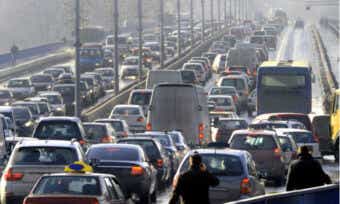Best car insurance Australia
Compare the top rated comprehensive car insurance policies from the Online Partners on Canstar’s database.

Instantly compare 60+ Canstar expert rated policies based on the inputs below
24/7 Phone & Online Claims.
Budget Direct - Insurance Solved.
Increasing Your Basic Excess (Within A Given Range)*
Lodge A Claim Online 24/7
• Flexible monthly policies with no exit fees
• Lodge a claim online 24/7






Showing 10 of 51 results
Unsure of a term in the above table? View glossary
The initial results in the table above are sorted by Star Rating (High-Low) , then Provider Name (Alphabetical) . Additional filters may have been applied, see top of table for details.
SPONSORED
-
New Car Replacement within the First Two Years. T&Cs apply
-
Feel confident you’re covered for theft.
-
24/7 Roadside Assist included in comprehensive. Exclusions, limits, T&C’s Apply.
-
Never worry with accidental damage included.
-
Drive happy knowing your car’s covered against storm, hail and flood damage.
Which type of car insurance is the best?
Before deciding which provider and policy to choose, it’s worth considering which type of policy will be best for you. There are three main types of car insurance available in Australia and these are described below. Deciding which is best for you means thinking about factors such as the kind of vehicle you are insuring, the level of cover you need and your budget for paying for it.
Compulsory Third Party (CTP) insurance
Compulsory Third Party (CTP) insurance is the most basic form of cover and is mandatory for Australian drivers in every state and territory. It protects you financially if you injure or kill someone in an accident but does not provide any cover for damage caused to other people’s property or your own vehicle.
Comprehensive car insurance
Comprehensive is the most extensive form of car insurance and includes cover for your own vehicle as well as other people’s property. It also tends to cost more than other types of cover. Comprehensive car insurance may be suitable if:
- you want a high degree of financial protection for a broad range of risks, including damage to your vehicle from a car accident as well as some of the indirect costs associated with being without a car while it’s being repaired.
- you would find it difficult to cover the the cost of repairing or replacing your vehicle by yourself
- your car is under finance, as some lenders will require you to have it adequately insured.
Third party car insurance
Third party car insurance provides cover for damage caused to another person’s property – for example, if you caused a crash and damaged someone else’s car. You may also have the option of taking out a third party car insurance policy that includes fire and theft cover for your own vehicle. Third party car insurance may be suitable if:
- the repair or replacement value of your own car is relatively low and affordable within your budget
- you could do without your own car while it is off the road following an accident
- you want a cheaper policy and are happy to sacrifice some of the extra cover you would get with comprehensive cover
Frequently Asked Questions about Car Insurance
Latest in car insurance
Canstar Star Ratings and Awards
Looking for an award-winning product or to switch providers or brands? Canstar rates products based on price and features in our Star Ratings and Awards. Our expert Research team shares insights about which products offer 5-Star value and which providers offer outstanding value overall. We also reveal which providers have the most satisfied customers in our dedicated Customer Satisfaction Awards.
Explore more car insurance:
Car insurance with roadside assistance
Car insurance in NSW
Car insurance in South Australia (SA)
Comprehensive car insurance for seniors and pensioners
Car insurance options
Youi Car Insurance
Bingle Car Insurance
Huddle Car Insurance
Insurance with rental car hire after an accident (if you’re not at fault)
Budget Direct Car Insurance
Multi-policy discounts for car insurance
Car insurance for good drivers
About our car insurance experts
Amanda Horswill, Former Deputy Editor, Canstar

Joshua Sale, Group Manager, Research & Ratings

As Canstar’s Ratings Manager, Josh Sale is responsible for the methodology and delivery of Canstar’s Car Insurance Star Ratings and Awards. With tertiary qualifications in economics and finance, Josh has worked behind the scenes for the last five years to develop Star Ratings and Awards that help connect consumers with the right product for them.
Josh is passionate about helping consumers get hands-on with their finances. Josh has been interviewed by media outlets such as the Australian Financial Review, news.com.au and Money Magazine.
You can follow Josh on LinkedIn, and Canstar on Twitter and Facebook.
Thanks for visiting Canstar, Australia’s biggest financial comparison site*
Important information
For those that love the detail
This advice is general and has not taken into account your objectives, financial situation or needs. Consider whether this advice is right for you.














